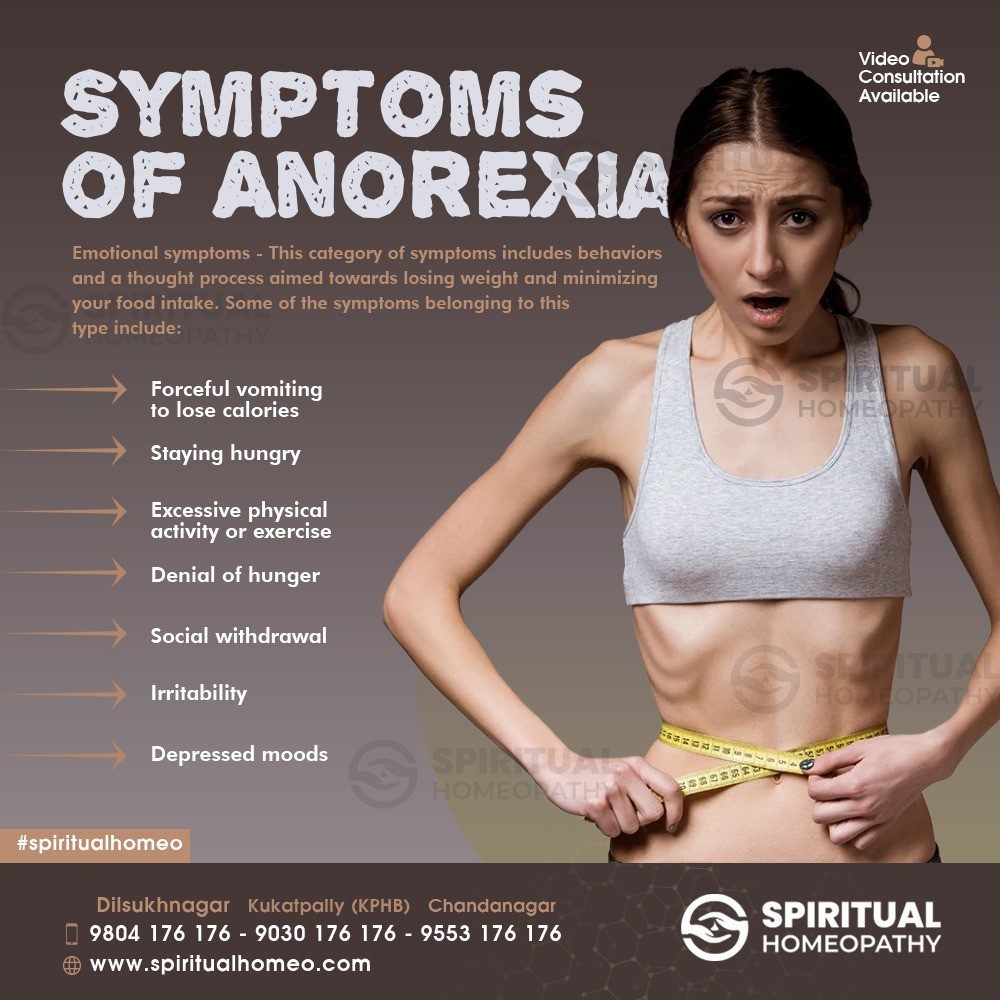Anorexia nervosa, commonly referred to as anorexia, is an eating disorder characterized by an intense fear of gaining weight and a distorted body image, which leads to severe restriction of food intake and often excessive exercise. Anorexia is a serious and potentially life-threatening condition that affects both physical and psychological health. The symptoms of anorexia can be complex and may include:
Significant Weight Loss: People with anorexia often lose a significant amount of weight and maintain a body weight that is well below what is considered healthy for their age and height.
Preoccupation with Food, Calories, and Dieting: Constantly thinking about food, calories, dieting, and weight loss is a hallmark of anorexia. Individuals may meticulously count calories, measure portions, and plan strict dietary rules.
Avoidance of Meals and Food: People with anorexia may avoid meals or consume very small amounts of food, even when they are hungry. They may make excuses to skip meals or avoid social eating situations.
Rapid Eating or Food Rituals: Some individuals with anorexia may engage in episodes of rapid eating, followed by guilt and attempts to compensate, such as excessive exercise or fasting. Others may develop strict rituals or rules around eating.
Physical Signs of Malnutrition: Anorexia can lead to a range of physical symptoms, including:
- Extreme thinness and emaciation.
- Fatigue and weakness.
- Brittle nails and hair.
- Dry, yellowish skin.
- Sensitivity to cold temperatures.
- Development of fine body hair (lanugo) as an attempt to conserve heat.
- Irregular or absent menstruation (in females).
Psychological and Emotional Symptoms: Anorexia can impact an individual’s mental health, leading to:
- Intense fear of gaining weight or becoming fat.
- A distorted body image, where the person perceives themselves as overweight even when they are underweight.
- Low self-esteem and a strong need for external validation based on appearance.
- Depression, anxiety, and mood swings.
- Social withdrawal and isolation.
- Obsession with appearance and perfectionism.
Physical Complications: Anorexia can lead to serious health complications, including:
- Cardiac issues, such as irregular heart rhythms and low blood pressure.
- Gastrointestinal problems, including constipation and digestive disturbances.
- Weakened bones (osteoporosis) and fractures.
- Kidney dysfunction.
- Electrolyte imbalances, which can be life-threatening.
- Muscle wasting and weakness.
Social and Behavioral Changes: Individuals with anorexia may become increasingly isolated, withdraw from social activities, and become secretive about their eating behaviors.
Anorexia nervosa is a complex and multifaceted disorder that requires comprehensive treatment, including medical, nutritional, and psychological components. Early intervention is essential to prevent severe health complications thorough homeopathic medications. If you or someone you know is exhibiting symptoms of anorexia, it is crucial to seek professional help from a healthcare provider. Treatment typically involves a combination of medical monitoring, nutritional counseling, psychotherapy, and family support.
Book an Appointment
Take the first step towards better health with Spiritual Homeopathy Clinics with best homeopathy doctors in Hyderabad
Call Us:
- KPHB: 9030 176 176
- Chandanagar: 9804 176 176
- Dilsukhnagar: 9553 176 176
Enjoy the convenience of online consultations. Book your appointment through our mobile app, available on the Play Store and App Store under the name “Spiritual Homeopathy.”
Start your journey to holistic healing today. Book your appointment now!



